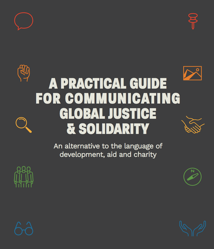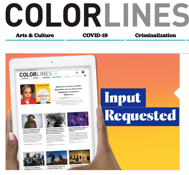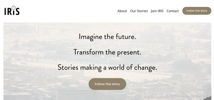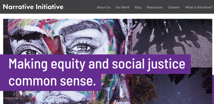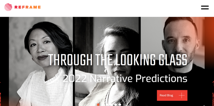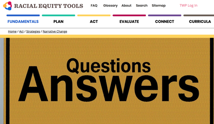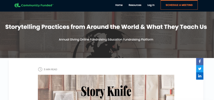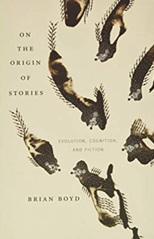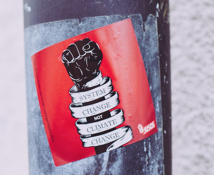
Meet the Systems Storytelling Fellowship Program cohort

Reports & Guides
-
![]()
Storytelling for Systems Change
Insights on storytelling for systems change by Centre for Public Impact, Dusseldorp Forum and Hands Up Mallee.
-
![]()
A Practical Guide for Communicating Global Justice & Solidarity
The way we talk about global issues affects how people think, feel and react to them. Recognising that language has the power to create social change, we have produced this guide with the intention of setting out a different approach to communicating global issues
-
![]()
The Storytellers’ Guide to Changing Our World (Culture Hack)
This short guide will help you explore the core story that can engage more people in co-creating a just and equitable world. It also describes Culture Surge’s work, the research this work is based on, and how stories power change
-
![]()
Telling a Different Story (Lankelly Chase)
Telling a Different Story explores how print and online news media report on severe and multiple disadvantage (SMD). In this report, SMD refers to the interlocking nature of multiple disadvantages such as extreme poverty, homelessness, discrimination, mental ill health, substance misuse, violence and abuse and contact with the criminal justice system.

Groups & Organizations
-
![]()
Africa No Filter
We support the development of nuanced and contemporary stories that shift stereotypical and harmful narratives within and about Africa. Through research, grant-making and advocacy we aim to build the field of narrative change-makers by supporting storytellers, investing in media platforms and driving disruption campaigns.
-
![]()
Baraza Media Lab
We are an initiative that serves as a crucial building block in strengthening the Kenyan media ecosystem, working to rebuild trust amongst the key players in the ecosystem and the public, and putting in place resources that will help address challenges being faced in terms of business models.
-
![]()
Color of Change
Color Of Change helps you do something real about injustice. We design campaigns powerful enough to end practices that unfairly hold Black people back, and champion solutions that move us all forward. Until justice is real.
-
![]()
Colorlines
COLORLINES is a daily news site where race matters, featuring award-winning in-depth reporting, news analysis, opinion and curation. COLORLINES is published by Race Forward, a national organization that advances racial justice through research, media and practice.
-
![]()
Culture Hack
We expose, disrupt and shift cultural assumptions to create new narrative spaces for possibility, hope and justice. Culture Hack Labs is a cooperatively run consultancy focused on data-driven research and strategy services for systems change.
-
![]()
Frameworks Institute
FrameWorks is a think tank that helps mission-driven organizations communicate about social issues in ways that build public will to support progressive change.
-
![]()
International Resource for Impact & Storytelling (IRIS)
n 2021, Ford partnered with the Skoll and Compton Foundations to launch the International Resource for Impact and Storytelling (IRIS), a donor collaborative for philanthropy focused on strengthening civil society through narrative strategies and creative moving image storytelling for impact.
-
![]()
Othering & Belonging Institute
The Othering & Belonging Institute at the University of California, Berkeley is a vibrant hub of scholars, researchers, organizers, strategic communicators, policymakers, and community partners working to find new ways to identify and eliminate the barriers to an inclusive, just, and sustainable world.
-
![]()
Narrative Initiative
Narrative Initiative catalyzes durable narrative change in order to make equity and social justice common sense. We make connections between people and organizations, amplify the best tools and methodologies from an emerging field, and activate new collaborations that lead to greater alignment.
-
![]()
Paukwa Storyhouse
Like our brand suggests, we are a proudly Kenyan company intent on delivering high quality stories from an authentically African perspective. The content creators at Paukwa House listen, engage and create with our clients to bring that story to life, crafted for the audience that needs to hear it.
-
![]()
Perception Institute
Perception Institute is a consortium of researchers, advocates, and strategists who translate cutting edge mind science research on race, gender, ethnic, and other identities into solutions that reduce bias and discrimination, and promote belonging. We work in sectors where bias has the most profound impact—education, healthcare, media, workplace, law enforcement, and civil justice.
-
![]()
Reframe
We use powerful technology to understand narratives across society in real time, gain strategic insight, and forecast arising opportunities to advance just narratives. We develop strategies, curate stories and mobilize networks to advance narratives that light the way to justice, liberation, healing and freedom for all people and the Earth.
-
![]()
Solutions Journalism Network
We train and connect journalists to cover what’s missing in today’s news: how people are responding to problems. We’re working to bring solutions journalism to every newsroom worldwide.
-
![]()
Storyline Partners
Storyline Partners (SP) is a collective of culture change strategists, issue-based organizations, and entertainment industry partners that supports inclusive, culturally resonant, authentic, and nuanced storytelling in popular culture. Our collective is a one-stop-shop for film and television content creators and writers, connecting the industry to community and issue-based organizations with expertise in cultural and narrative consulting.
-
![]()
Working Narratives
We work with movements to tell great stories that inspire, activate and enliven our democracy. We believe that social movements thrive and win when they draw on participants’ personal experiences and local cultures. By telling stories—in the form of performance, radio, video or other media—movements build power, envision new democratic possibilities and change culture and policy.

Initiatives
-
![]()
Bukavu Series
The Bukavu Series online exhibition explores the power dynamics between researchers from the Global North and the Global South. The Series is a visual extension of the Silent Voices Blog: Bukavu Series, which discusses how knowledge is produced across academia and the ethical issues that arise from conducting research in conflict sites.
-
![]()
New Voices Fellowship
The New Voices Fellowship is a year-long, non-residential program that provides intensive media and advocacy training for frontline development experts. With support from a team of experienced mentors and trainers, New Voices Fellows develop and amplify their ideas to bring about meaningful change.
-
![]()
Public Narrative
In this online course, Professor Marshall Ganz shares the fundamentals of telling your story of self. Follow along with the videos to understand why public narrative is key to being a leader who can create and maintain action-oriented relationships, develop organising strategies and communicate authentically with voters
-
![]()
Racial Equity Tools for Narrative Change
We offer tools, research, tips, curricula, and ideas for people who want to increase their own understanding and to help those working for racial justice at every level – in systems, organizations, communities, and the culture at large.
-
![]()
Storytelling Practices From Around the World & What They Teach Us
A collection of storytelling practices from around the world and how they can be applied to nonprofit fundraising communications.
-
![]()
Solidarity Series
At a time of increased anti-Asian hate and ongoing violence targeting Black, indigenous and Latinx communities, solidarity is a practice that can anchor us. Here, we have gathered stories about the complexity and possibility of solidarity practices in Asian American and Pacific Islander communities.

Podcasts & Webinars
Audio: The Battle of the Narratives, Organizing for Transformative Change

Video:
Mara Menzies (Storytelling)


Articles & Books
-
![]()
A conversation about cultural strategy (Jeff Chang, Liz Manne & Erin Potts 2018)
Many of us working in the field of cultural strategy feel that there is both confusion and conflation amongst key terms and concepts that is holding our work back. To address this, several groups of practitioners came together earlier this year to discuss definitions and relationships between terms, as well as to develop generalized values and a theory of change that connects them.
-
![]()
Food justice and narrative ethics (Beth Dixon 2018)
With stories from national media, food and farming memoirs, and scholarly ethnographies, Dixon reveals how different food narratives are constructed, and enable identification of just solutions to issues surrounding food insecurity, farm labor, and the lived experience of obesity
-
![]()
On the origin of stories (Brian Boyd 2010)
A distinguished scholar offers the first comprehensive account of the evolutionary origins of art and storytelling. Brian Boyd explains why we tell stories, how our minds are shaped to understand them, and what difference an evolutionary understanding of human nature makes to stories we love.
-
![]()
Systems language for narrative power (Rinku Sen 2021)
All of us are systems creators, users, voters, evaluators and innovators. We engage in systems daily: the economy, education, health care, and criminal justice systems to name a few. If we’re all part of and working in systems, why doesn’t our language reflect the power people have to shape and change them?
-
![]()
Storytelling for Social Justice (Lee Ann Bell 2010)
Through accessible language and candid discussions, Storytelling for Social Justice explores the stories we tell ourselves and each other about race and racism in our society.
-
![]()
The Power of Asset Framing (Natalie Fotias, 2018)
“How do we create equitable outcomes for all members of our community? We can start by defining people by their aspirations, not their challenges.”
-
![]()
The truth about stories (Thomas King 2008)
Native novelist and scholar Thomas King explores how stories shape who we are and how we understand and interact with other people. From creation stories to personal experiences, historical anecdotes to social injustices, racist propaganda to works of contemporary Native literature, King probes Native culture's deep ties to storytelling.

Storytelling Tools, Toolkits & Schools
-
![]()
The Michigan Fish Test
The researchers have found increasing evidence that East Asians, whose more collectivist culture promotes group harmony and contextual understanding of situations, think in a more holistic way. They pay attention to all the elements of a scene, to context and to the relationships between items. Western culture, in contrast, emphasizes personal autonomy and formal logic, and so Westerners are more analytic and pay attention to particular objects and categories.
-
![]()
The Moth Storytelling School
The Moth Education Program works with young people and educators to build community through storytelling workshops, performances and innovative resources.
-
![]()
The Storytelling Project Curriculum
This curriculum asks students to consider what we lose when stories of and by diverse groups are concealed or lost, and what we gain as a society when we listen to and learn from the multitude of stories available for our consideration. The curriculum also invites students to tell their own stories and through telling identify the challenges they face in a racialized society and articulate their visions for a future that offers inclusion, equity and justice to all of the diverse people who make up our society.
